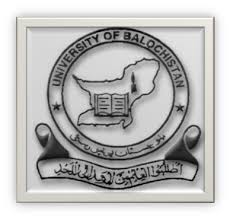Balochistan is suffering from insurgency, bad governance and economic hardships. At the same time political uncertainty due to the Murree Accord has paralysed government functioning in Balochistan. Will there be a change of chief minister today – December 4
The PML-N turned out to be the majority party in the Balochistan Assembly after the general elections of 2013. It was expected that Nawab Sanaullah Zehri, provincial president of the PML-N, would be made the CM. However, Prime Minister Nawaz Sharif had a different idea in mind. As a result the Murree Accord was signed between the PML-N, the National Party (NP) and the Pashtunkhwa Milli Awami Party (PkMAP).
Dr Abdul Malik Baloch of the NP, a minority party in the assembly, was made CM for the first half of the tenure. It was also agreed in the Murree Accord that there would be a change of guard after two and a half years and the provincial president of the PML-N would be the next CM.
The Murree Accord was undemocratic to begin with. A minority CM should not have been forced on the majority through an agreement that was forced from the centre. Secondly, it was also an attack on provincial autonomy; the fate of Balochistan being decided in the Murree by the rulers of Lahore.
Nawab Sharif often takes credit for transferring power to the nationalists despite having majority in Balochistan. It seems more like a well-planned move where Nawaz got rid of the responsibility of Balochistan. That is the reason that he has managed to escape any blame for the bad governance that has marred Balochistan since May 2013.
Dr Abdul Malik Baloch of the NP, a minority party in the assembly, was made CM for the first half of the tenure. It was also agreed in the Murree Accord that there would be a change of guard after two and a half years and the provincial president of the PML-N would be the next CM.
The Murree Accord was undemocratic to begin with. A minority CM should not have been forced on the majority through an agreement that was forced from the centre. Secondly, it was also an attack on provincial autonomy; the fate of Balochistan being decided in the Murree by the rulers of Lahore.
Nawab Sharif often takes credit for transferring power to the nationalists despite having majority in Balochistan. It seems more like a well-planned move where Nawaz got rid of the responsibility of Balochistan. That is the reason that he has managed to escape any blame for the bad governance that has marred Balochistan since May 2013.



Comments
Post a Comment